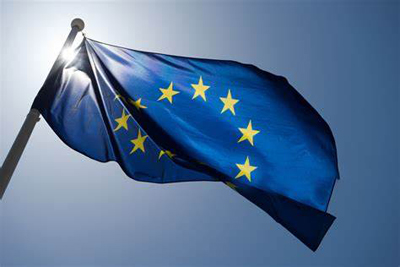Eurozone economic recovery fades further in July with weak manufacturing report
Hamburg, Germany – Provisional PMI® survey data signaled a near-stagnation of the eurozone private sector during July as the currency bloc’s
economic recovery continued to wane. New orders fell for the second month running and business confidence dropped to a six-month low, leading firms to halt a spell of hiring which began at the start of 2024. Meanwhile, the rate of input cost inflation quickened, but demand weakness meant that companies raised their selling prices at a softer pace. In fact, the pace of charge inflation was the slowest since last October.
The eurozone manufacturing sector was again a key source of weakness. Production was down markedly in July, and to the largest extent in the year-to-date. As such, a rise in services activity stopped the overall private sector from falling into contraction. That said, the expansion in the service sector was only modest and the weakest since March. The two largest euro area economies continued to underperform the wider region. Output in Germany decreased for the first time in four months, while France posted a third consecutive monthly reduction in business activity. This performance contrasted with continued growth across the rest of the euro area, albeit the latest increase in output was the least marked since January.
The seasonally adjusted HCOB Flash Eurozone Composite PMI Output Index, based on approximately 85% of usual survey responses and compiled by S&P Global, fell to 50.1 in July from 50.9 in June, posting only fractionally above the no-change mark and thus pointing to a near-stagnation of private sector activity. Output has now risen in each of the past five months, but the latest expansion was the softest in this sequence and thus represents a weak start to the third quarter of the year.
Any growth that was recorded was generally linked to services business activity, which increased for the sixth month running
in July. The modest expansion was the slowest in four months, however. Meanwhile, manufacturing output continued to
decline at the start of the third quarter, extending the current sequence of contraction to 16 months. Moreover, the pace of
reduction was marked, having accelerated to the fastest in 2024 so far.
The near-stagnation of business activity reflected further signs of weakness in demand. New orders decreased for the second
month running in July. The pace of reduction quickened slightly from that seen in June, but remained only modest nonetheless.
As was the case with output, growth in services new business contrasted with a fall in manufacturing new business, but here
the modest expansion in services was insufficient to offset the steepest fall in manufacturing new orders since December.
New export orders (which include intra-eurozone trade) fell more quickly than total new business as firms in the eurozone
continued to struggle to secure sales from international clients. New export orders decreased for the twenty-ninth successive
month, and at a solid pace that was fractionally quicker than that registered in the previous survey period.
Although companies remained optimistic that business activity will rise over the coming year, sentiment dipped to a six-month
low and came in just below the series average. Confidence waned in both the manufacturing and service sectors, with
sentiment remaining higher in the latter.

